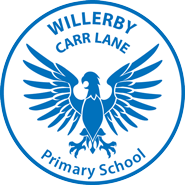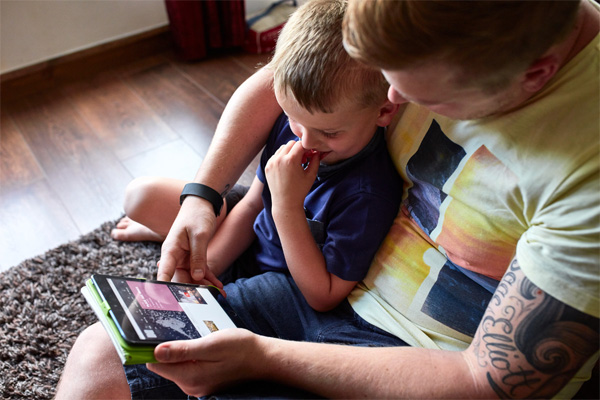Online Safety
What are the issues?
The internet – on the whole is an inspiring and positive place.
The internet is an amazing resource which enables children and young people to connect, communicate and be creative in a number of different ways, on a range of devices.
However, the internet is always changing, and being able to keep up to date with your children’s use of technology can be a challenge.
You may sometimes feel that your children have better technical skills than you do, however children and young people still need advice and protection when it comes to managing their lives online.
Issues that your child may encounter on the internet will vary depending on their age and online activities.
Organisations and websites offering further information and support for online safety:
Play Like Share –
Play Like Share follows the adventures of Sam, Ellie and Alfie as they form a band and enter their school’s Battle of the Bands contest, taking on the mean but ‘cool’ Popcorn Wizards as they go. The three friends learn that while the internet can help, they need to use it wisely and safely.
The aim of the films is to help 8-10 year olds learn how to stay safe online. In particular, the films teach them to spot the early signs of manipulative, pressurising and threatening behaviour by people they might meet online, and develops their confidence to respond safely and get help.
Be Share Aware –
Keep your child safe online
We tell our children it’s good to share – but online it’s different. In fact sometimes sharing online can be dangerous. Being Share Aware will help keep your child safe online.
Watch and share a short film and take a look at some straightforward advice that will untangle the web, and give parents confidence in talking to their children about how to stay safe online.
‘When he completed his year 4 spellings they tried him with year 5 then year 6 which he has all completed. I like the fact that they didn’t just let him coast.’
‘My son has left Carr Lane a confident, happy pupil with a large circle of friends thanks to all of the wonderful opportunities and experiences that the fabulous team at Carr Lane have provided over the years. It’s a wonderful school with a great community feel and I am proud to be a Carr Lane parent.’
‘All the foundation staff are amazing and he has loved every minute!’
‘Willerby Carr Lane is a fantastic school, with nurturing and caring staff who strive to support the children in achieving their full potential. I would have no hesitation in recommending this as a school to any parent.’
‘She is always so keen and happy to go to school.’
‘He skips into school everyday and due to learning being so much fun he always wants to learn and develop his skills…’
‘The teaching staff really understood my child and how to get the best out of him.’
‘So pleased with my child’s progress at Carr Lane. Can’t believe how far he has come in 2 years! The staff are incredibly caring and lessons are well thought out.’
‘Excellent. Improved beyond our expectations. Pushed to his potential in all areas especially reading.’
‘He loves school and I feel that he has been pushed which is good.’
‘She has loved the musical opportunities in the form of singing.’
‘Teachers have been supportive and helpful and he has done fantastically with his learning in all aspects!’
reat education, help when needed, high standards, feeling secure, great environment to learn and a great team of staff and Head Teacher.’
‘All of the staff at Willerby Carr Lane work together to create a happy and welcoming environment for children to learn, develop and grow into confident, well rounded children.’
‘She has enjoyed another year at school and continued to develop academically as well as skipping off into the room happily every morning which is massively important to a parent!’
‘He really has progressed so much since starting school and has become such a confident boy.’
‘We have two children at the school and we never hear any complaints about the school from them and I can honestly say all the teachers have been superb.’
‘She enjoys going to school and takes every task on with her own enthusiasm and enjoys all subject areas.’
‘I have been particularly impressed with the way in which Care Lane teach the non core curriculum subjects such as DT and music. The children get a really great deal at Carr Lane with a carefully crafted curriculum from Caring and expert staff. Thank you.’
‘I love the experiences that he gets by being a Carr Lane Pupil and thoroughly recommend the school.’
‘The EYFS department are a brilliant group of teachers and we will miss them greatly.’
‘She is very capable and the teachers have always gently pushed her to excel and achieve her potential. Thank you.’
‘A Fantastic school and my child is very happy here!’
‘I would definitely recommend Carr Lane Primary school to any parent. As a mum I have loved the welcoming, friendly, family style attitude that has let us join in with trips, teaching, helping, mums races,PFA etc. I will truly miss being part of the Carr Lane family team and want to thank everyone over the years for contributing so much to my boys educational journey. Well done to you all and thank you again.’
‘A very warm and friendly school who have loved and nurtured my daughter.’
‘He has developed in every area and the progress that he has made has been outstanding!’
‘The patience & understanding of the staff has been amazing!’
‘Couldn’t have picked a better school!!’
‘We have had 3 children go to Carr Lane School and their years there have been extremely happy, our eldest moved from another school to Carr Lane in Year 1 when we moved house and it was the best decision we ever made. He became a happier boy overnight and started to enjoy school. I would have no hesitation in recommending this school to another parent.’
‘He has not only developed in his ability but in his confidence!’
‘What an amazing start for him at Carr Lane I can’t thank you enough.’
‘This is one of the reasons people move to Willerby’
‘He has been very enthusiastic about his school work and enjoyed every moment of his time.’
‘He has been happy every day and enjoys school.’
‘In my eyes, this is an outstanding school and is highly recommended!’
‘The teacher has understood his educational needs and given him the environment and support to let him improve. Thank you so much.’
‘Both of our girls who are five years apart in age attended WCLPS and received a first class education in a safe, caring and inspirational environment. Thank you all so much for this priceless start to their learning journey.’
‘A happy, content little boy — a product of your environment. Our continued thanks.’




